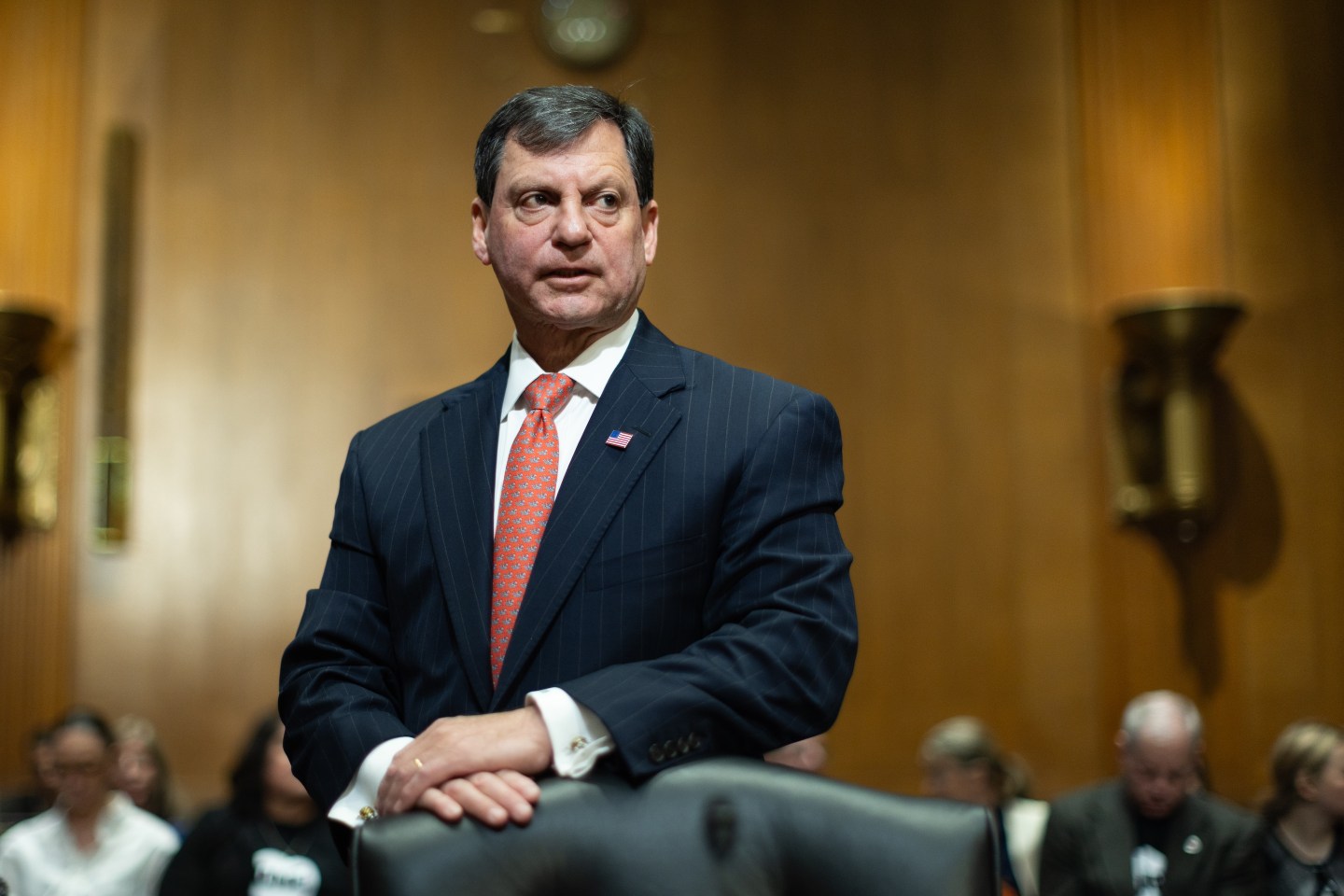This is the web version of CEO Daily. To get it delivered to your inbox, sign up here.
Good morning. David Meyer here in Berlin, filling in for Alan.
On Sunday I went for a run around my large local park, where hundreds of Berliners were enjoying the warmth. I had just read an article about how people exercising could pose more of a virus-spreading risk, so, though I have no reason to suspect I am infected, I wore a mask out of a sense of social responsibility. Pandemic etiquette, if you will.
I was the only runner there to do so and, among the not-very-socially-distant crowds on the grass and paths, I counted just six masks. It should have felt calming to see scant evidence of this pandemic, but it was mostly terrifying.
Germany is doing well, relative to countries such as the U.K., in how it is handling COVID-19—which is why so many people are watching our rollback of lockdown restrictions, to see what happens. But I fear comparative success is leading to complacency that could allow a severe second wave. Just because our shops and restaurants are cautiously reopening, that doesn’t mean the coast is clear.
My weekend experience sprang to mind when Anthony Fauci gave remote testimony to senators yesterday, issuing a stark warning about the consequences of moving out of lockdown too quickly.
Without being watchful and ready to respond to early signs of resurgence, the infectious-disease specialist said, “There is a real risk that you will trigger an outbreak that you may not be able to control, which in fact, paradoxically, will set you back, not only leading to some suffering and death that could be avoided but could even set you back on the road to try to get economic recovery.”
Fauci’s testimony spooked already-nervous markets, knocking 457 points off the Dow. In Europe, where second-wave fears are also taking hold—Germany’s infection rate is worryingly around the crucial threshold of 1—markets are also down this morning.
Our economies certainly need to be restarted, and we should do whatever we can safely manage in order to achieve that. But, to avoid the paradox that Fauci set out so plainly yesterday, we have to accept that baby steps may get us back to our destination of quasi-normality more quickly than bold leaps.
News below.
David Meyer
@superglaze
david.meyer@fortune.com
TOP NEWS
Ad pullback
Advertisers such as General Motors and PepsiCo are reportedly trying to back out of more than $1 billion in Q3 commitments they have made to broadcast and cable networks. The option for them to do so became available at the start of this month. That wouldn't just be another big blow to the media; it also implies that these consumer-goods firms are worried about a prolonged economic downturn. Wall Street Journal
Democrat stimulus
It's unlikely to get anywhere as things stand, but here it is anyway: the Democrats have unveiled a $3 trillion coronavirus stimulus bill called the HEROES Act (in full, the Health and Economic Recovery Omnibus Emergency Solutions Act). You probably don't have time to go through all 1,816 pages, so here's a quick take from Fortune's Nicole Goodkind and Sy Mukherjee: $500 million would go to states, $375 billion to local governments, $20 billion to tribal communities and $20 billion to U.S. territories. Individual Americans would also get another $1,200 in direct aid. Fortune
U.K. furloughs
The British government is extending its extraordinary wage-subsidy scheme for furloughed workers until the end of October. Some 7.5 million workers are currently having 80% of their wages (up to a £2,500/$3,070 cap) paid by the government, and until yesterday the scheme was scheduled to close at the end of next month. From August, employers will need to pay a share of that 80% payment. Guardian
Carolyn Reidy
Simon & Schuster CEO Carolyn Reidy died yesterday, at the age of 71, from a heart attack. Reidy had headed the big-five publisher since 2008, arriving to immediately steer it through the chaos of the financial crash. Journalist Bob Woodward, one of the authors in her stable, praised her as "one of the great publishers and book people of all time." Fortune
AROUND THE WATER COOLER
WFH
Twitter will allow its employees to work from home indefinitely, even post-lockdown, unless their jobs require a physical presence. A few other companies such as Nationwide have made similar moves. In Twitter's case, the company does not expect its offices to reopen until September anyway. Buzzfeed
Hamilton hurry
Disney has brought forward by more than a year the release of its filmed version of the Hamilton stage musical. The show will hit the Disney+ streaming service on July 3, effectively cancelling its planned theatrical run. Then again, Disney+ is scrambling to find subscriber-pulling content, seeing as production is suspended on key series such as the Marvel-produced Falcon and the Winter Soldier and WandaVision. The Verge
Goldman warning
Which commodity is as precarious as oil? According to Goldman Sachs, it's livestock, due to the havoc wreaked on the food industry by lockdowns. Goldman commodities research chief Jeff Currie: "[Livestock and oil] both share something in common: You do damage to the supply, it takes a while to bring it back online again." CNBC
Merkel's successor
The race to succeed Germany's outgoing chancellor, Angela Merkel, has been turned upside-down by the coronavirus pandemic. Markus Söder—the conservative Bavarian leader whom we called the wildcard three extremely long months ago—is suddenly the front-runner due to his strong performance in handling the pandemic, and despite the fact that he isn't even in Merkel's party. Meanwhile former favorite Armin Laschet, a relative liberal in the Merkel mold, has slipped into third place. Financial Times
This edition of CEO Daily was edited by David Meyer.











